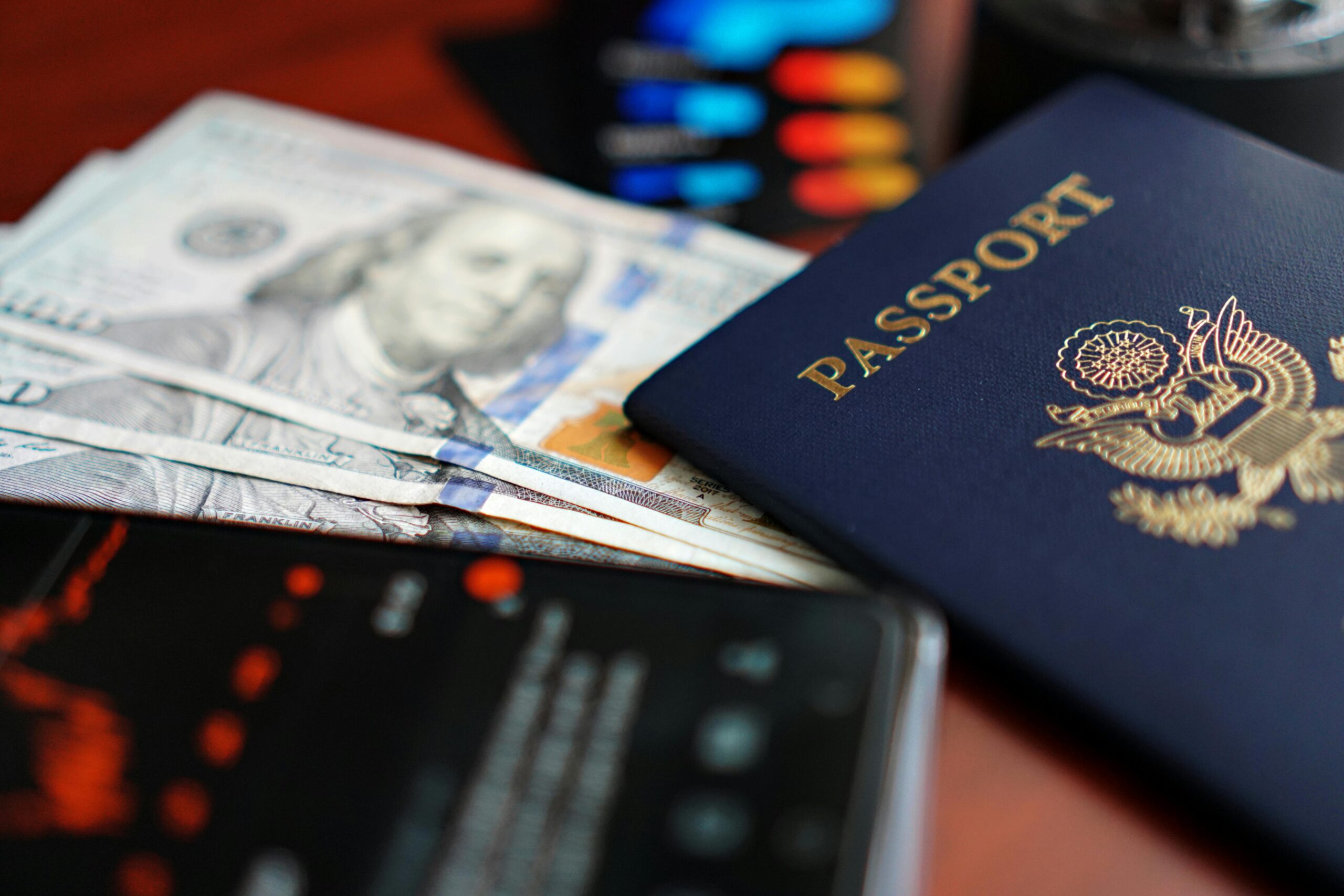Recent legislative discussions in the United States have brought a significant potential change to the forefront for many individuals residing in Canada. A proposed measure, reportedly part of a broader legislative package known as the H.R.1. Act, could introduce a substantial new fee for entry into the U.S. This proposal, termed the ‘US Visa Integrity Fee,’ is projected to be around $250 and could impact a wide range of travellers, including Canadian citizens, Canadian permanent residents, and temporary foreign workers living in Canada. The implications of such a fee are vast, potentially altering the landscape of cross-border travel, tourism, and business that has long defined the Canada-U.S. relationship.
This article provides a detailed analysis of the proposed fee, examining its legislative basis, who it is likely to affect, how it compares to existing travel authorization systems, and the potential consequences for individuals and the broader economy. As an immigration professional, understanding these potential shifts is crucial for providing timely and accurate guidance.
Table of Contents
- Decoding the Proposed $250 US Visa Integrity Fee Under H.R.1 A Crucial Guide: Who Would This New US Travel Fee for Canadians Affect? Context is Key: Juxtaposing the Visa Integrity Fee with the US ESTA Program Profound Consequences: The Potential Impact on Canada-US Travel and Relations Frequently Asked Questions
Decoding the Proposed $250 US Visa Integrity Fee Under H.R.1
The emergence of the proposed ‘US Visa Integrity Fee’ stems from ongoing legislative activities in the United States, specifically linked to a bill designated as H.R.1. In the U.S. legislative process, ‘H.R.1’ is often reserved for a signature piece of legislation prioritized by the majority party in the House of Representatives. While the exact scope of this act can vary, it typically involves significant policy overhauls. In this context, the introduction of a new travel fee appears to be part of a broader strategy aimed at enhancing border security, funding immigration processing, and ensuring the integrity of the U.S. visa system. The stated purpose of the ‘Visa Integrity Fee’ would likely be to cover the administrative costs associated with vetting and processing an increasing volume of travellers, thereby shifting the financial burden from the U.S. taxpayer to the traveller.
At a proposed figure of $250 per person, this fee represents a monumental shift from the current travel cost paradigm for those entering the U.S. from Canada. It is not envisioned as a visa application fee in the traditional sense, but rather as a prerequisite for entry for certain categories of travellers who may not even require a visa. The name ‘Visa Integrity Fee’ itself suggests a focus on security and verification, implying that the revenue generated would be earmarked for bolstering the technological and human resources needed to screen foreign nationals. The timeline, pointing towards a potential implementation in 2025, indicates that while not yet law, this is an active and serious proposal that travellers and businesses should monitor closely. The final details, including the fee’s validity period and the precise application process, remain contingent on the bill’s final language and subsequent regulatory implementation.
A Crucial Guide: Who Would This New US Travel Fee for Canadians Affect?
One of the most pressing questions surrounding the proposed US Visa Integrity Fee is its scope: who, exactly, would be required to pay? The preliminary information suggests a broad application that could fundamentally change the travel calculus for three distinct groups residing in Canada. First and most surprisingly, Canadian citizens, who have long enjoyed the privilege of visa-exempt travel to the U.S. for tourism and business, may be included. This would be an unprecedented development, moving beyond simple identity verification at the border to a pre-emptive and costly electronic authorization. For the millions of Canadians who cross the border annually, a $250 fee would introduce a significant financial barrier, impacting everything from family vacations to cross-border shopping and attendance at professional events.
Secondly, Canadian permanent residents would almost certainly be subject to this fee. As non-citizens, they already face different entry requirements than Canadian citizens, often depending on their country of citizenship. For many, this new fee would be an additional layer of cost and administration on top of existing requirements, such as potentially needing a visitor visa or an Electronic System for Travel Authorization (ESTA) if they are from a Visa Waiver Program country. The third major group is temporary foreign workers in Canada. This diverse group, including skilled workers, international students with work authorization, and agricultural workers, would see their ability to make short trips to the U.S. complicated further. Their eligibility to enter the U.S. is tied to their passport, and this fee would add another financial and administrative hurdle, potentially discouraging travel and creating complexities for employers with cross-border operations.
Key Takings: Populations Impacted by the Proposed US Travel Fee
- Canadian Citizens: The most significant shift would be for Canadian citizens. A $250 fee would end the long-standing tradition of relatively seamless, fee-free entry for tourism and business, introducing a major new cost for casual and frequent travellers alike. Canadian Permanent Residents (PRs): Already navigating entry rules based on their country of citizenship, PRs would face an additional financial burden. This fee would be levied on top of any existing visa or ESTA requirements they might have. Temporary Foreign Workers & Students: This group, vital to Canada’s economy, would find personal and professional travel to the U.S. more expensive and administratively complex. The fee could act as a deterrent for short-term travel. Cross-Border Communities & Businesses: The collective impact on these groups would have a ripple effect, potentially dampening the vibrant economic and social exchange that characterizes border communities and integrated industries.
Context is Key: Juxtaposing the Visa Integrity Fee with the US ESTA Program
To fully grasp the magnitude of the proposed $250 Visa Integrity Fee, it is useful to compare it with the existing U.S. Electronic System for Travel Authorization (ESTA). ESTA is a requirement for citizens of countries participating in the Visa Waiver Program (VWP), which allows travel to the U.S. for up to 90 days without a visa. Currently, the fee for an ESTA is $21, and a successful authorization is valid for two years. The proposed Visa Integrity Fee, at $250, is more than ten times higher. This stark difference in cost signals a fundamental difference in purpose. While ESTA is primarily a security screening tool with a fee designed to cover its operational costs, the $250 figure suggests a dual purpose: security screening combined with significant revenue generation.
Furthermore, ESTA applies to citizens of specific allied countries with high-security standards. Applying a similar, yet far more expensive, system to Canadian citizens would represent a dramatic re-evaluation of the historically unique Canada-U.S. travel relationship. The VWP is built on reciprocity and trust; imposing such a high fee on travellers from Canada could be perceived as a move away from that cooperative spirit. For Canadian permanent residents and temporary workers who are citizens of VWP countries, it remains unclear if they would be required to pay both the $21 ESTA fee and the new $250 Visa Integrity Fee, or if the new fee would supersede it. This ambiguity highlights the administrative complexities that would need to be resolved before implementation, creating uncertainty for a large population of travellers who must currently navigate U.S. entry rules.
Profound Consequences: The Potential Impact on Canada-US Travel and Relations
The introduction of a $250 entry fee would have profound and far-reaching consequences that extend beyond the individual traveller. Economically, it could deal a significant blow to the tourism industries on both sides of the border. Canadian ‘snowbirds’ who winter in southern U.S. states might reconsider their plans, and American border towns that rely on Canadian shoppers could see a sharp decline in revenue. For a family of four, a trip to the U.S. would come with an upfront cost of $1,000 before accounting for gas, accommodation, or activities. This financial barrier could redirect Canadian tourist dollars to domestic or other international destinations. The logistics industry, particularly trucking, would also need clarity on whether the fee applies to essential commercial drivers, as any new cost or delay could disrupt the tightly integrated North American supply chain.
From a policy perspective, this move could strain Canada-U.S. relations. The shared border is often celebrated as a model of cooperation. A unilateral fee of this magnitude could be viewed as protectionist and contrary to the spirit of agreements like the Canada-United States-Mexico Agreement (CUSMA). It would likely trigger calls for a retaliatory response from the Canadian government, potentially leading to a tit-for-tat escalation of fees that would harm travellers and businesses in both countries. For individuals, the impact is clear: reduced mobility, increased costs, and greater administrative burdens. As discussions around the H.R.1. Act continue, it is imperative for all affected parties—from individuals and families to major corporations—to stay informed about its progress and prepare for a potentially new and more expensive era of cross-border travel.
Frequently Asked Questions
What is the proposed US Visa Integrity Fee?The US Visa Integrity Fee is a proposed new charge for foreign nationals, potentially including Canadian citizens, permanent residents, and temporary workers, to enter the United States. It is reportedly part of a larger legislative proposal, the H.R.1. Act, aimed at funding and strengthening border and visa security measures. How much is the new US travel fee for Canadians expected to be?
The proposed fee is approximately $250 per person. This amount is significantly higher than existing travel authorizations like the ESTA and would represent a major new cost for those travelling from Canada to the U.S. Who would be required to pay the new US travel fee?
The fee is expected to impact a wide range of individuals, including Canadian citizens, Canadian permanent residents, and temporary foreign workers residing in Canada. The exact scope is still being determined, but it could apply to many who currently enjoy visa-exempt or streamlined travel to the U.S. What is the H.R.1. Act mentioned in relation to this fee?
H.R.1. is a designation typically used for a high-priority bill introduced in the U.S. House of Representatives. In this context, it appears to be a legislative package that includes provisions for border security and immigration reform, with the Visa Integrity Fee being one of its components. Talk to us to find out more. ->
The content above is not intended to provide legal advice or opinions of any kind and may not be used for professional or commercial purposes.







